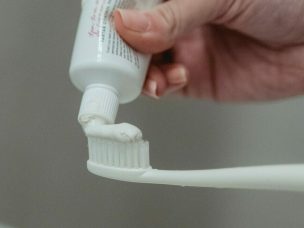While the Dyson high-efficiency particulate air purifier significantly improved air quality, the device did not yield any significant outcomes in lung function measures, asthma control, or quality of life, in this study.
Emerging evidence supports the association between air pollution and poor asthma outcomes. While the efficacy of high-efficiency particulate air purifiers and related devices remains uncertain, such devices may improve asthma outcomes by reducing air pollution. A randomized controlled trial investigated the effects of the Dyson high-efficiency particulate air purifier for reducing air pollutants and mitigating asthma outcomes. This study, published in the journal Annals of Allergy, Asthma, and Immunology, concluded that the air purifier led to a significant improvement in the quality of the air. However, the results indicated no significant improvement in lung function measures, asthma control, or quality of life.
Baseline Prevalence of Asthma
The trial included 50 randomized patients, of whom 78% had a high prevalence of allergic rhinitis and aeroallergen sensitization. The two study groups did not differ significantly on the basis of patient characteristics.
Symptom and Quality of Life Questionnaire Scores
The Asthma Control Questionnaire 6 (ACQ6) and Asthma-Specific Quality of Life Questionnaire (AQLQ) scores of patients in the intervention and placebo groups indicated that asthma control was achieved in both groups, predominantly in the intervention group patients. There was a statistically significant reduction in the ACQ6 scores in both groups from baseline to the last visit. The intergroup reduction in the mean ACQ6 score was calculated to be 0.49 at the last visit; however, this remained statistically insignificant. The AQLQ scores increased over all (11) visits in both groups, indicating an improvement in the quality of life of patients. Within-group improvement in AQLQ scores from baseline to the last visit between both groups was statistically significant. However, the inter-group differences in AQLQ scores and corresponding asthma quality of life were not statistically significant.
Indoor Air Pollution
The baseline measures of indoor air pollution were not statistically significant between the intervention and placebo groups. However, mean particulate matter (PM2.5) concentrations were significantly reduced in the intervention group comprising active filters, which were comparable to the value recommended by the World Health Organization (WHO).
Spirometric Measurements
The baseline spirometry measurements were comparable between the two groups. These consisted of forced expiratory volume in one second (FEV1), peak expiratory flow, mean expiratory flow, and forced vital capacity (FVC). There were no significant intergroup differences in the spirometric measurements at the end of the study.
The current study demonstrated a positive association between using the Dyson air purifier and significantly improving indoor air quality. Despite such an outcome, the results indicated no significant improvement in lung function measures, asthma control, or quality of life.
Source:
Fong, W. C. G., Kadalayil, L., Lowther, S., Grevatt, S., Potter, S., Tidbury, T., Bennett, K., Larsson, M., Nicolas, F., Kurukulaaratchy, R., & Arshad, S. H. (2023). The efficacy of the Dyson air purifier on asthma control: A single-center, investigator-led, randomized, double-blind, placebo-controlled trial. Annals of Allergy, Asthma, and Immunology, 130(2), 199-205.e192. https://doi.org/10.1016/j.anai.2022.10.010










